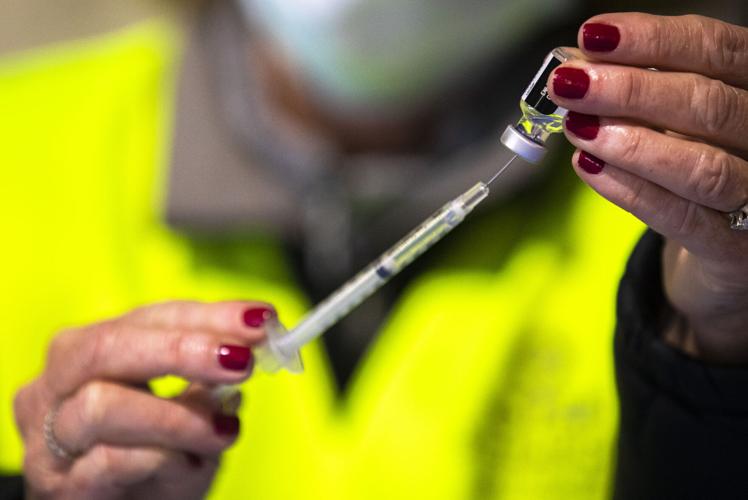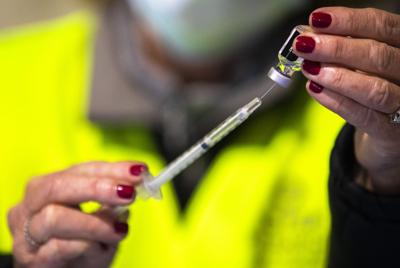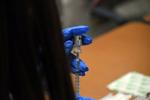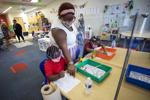Tyler Saba, like thousands of other young adults in South Carolina, didn't get a COVID-19 vaccine when they were first made available to adults of all ages this past spring.
But by Aug. 2, he'd changed his mind.
"My father recently got engaged and the wedding is coming up," said Saba, 24, who was vaccinated in early August at Sweetgrass Pharmacy in Mount Pleasant.
Saba said he didn't want to put any of the older wedding guests at risk, so he decided to get the shot.
He'd waited a few months to get the vaccine for several reasons. His mother had suffered side effects after getting vaccinated, while some of his young apartment-mates came down with COVID-19 but weren't seriously ill. Also, the vaccine development process seemed rushed, Saba said, and he didn't want to be among the first to get it.
But a lot of people, like Saba, are reevaluating their reasons for remaining unvaccinated now that the Delta variant has taken hold in South Carolina and COVID-19 cases are climbing again. Dr. Jane Kelly, assistant state epidemiologist for the S.C. Department of Health and Environmental Control, said the agency has observed in recent weeks an uptick in vaccination numbers. At a vaccine event in the Midlands in late July, Kelly said more than 600 people received a shot in one day.

While vaccinations had recently plateaued in South Carolina, the state health agency has noticed a recent uptick in adults getting their shots. File/Gavin McIntyre/ Staff
"It really plateaued for quite a while," said Kelly, who explained that many young adults in the 20- to 24-year-old age group seem to downplay the risks of contracting COVID and have so far been less likely than adults of other ages to get vaccinated.
DHEC officials have said that if young adults, ages 20 to 24, were to increase their vaccination rate by a significant number, it would play a "major role" in helping the state reach herd immunity. To date, less than 45 percent of all adults are fully vaccinated in South Carolina.
But minds are changing with the Delta variant in play, Kelly said. "We know what we're seeing. Younger age groups are getting sick."
Data from the state health department and Charleston-area hospitals bear this out.
Daily case counts reported by DHEC are now topping 1,000 new confirmed diagnoses each day. That's more than a tenfold increase from what the agency was reporting in mid-June.
Hospitalizations are up, too. On Aug. 3, more than half of the 47 COVID-19 inpatients at Trident Medical Center and Summerville Medical Center were under 40. Several young adults with COVID-19 across all Charleston hospitals have been admitted to intensive care units. Virtually all of these hospitalized patients have not been vaccinated.
For Mount Pleasant resident Mark Fiem, 46, it wasn't the threat of contracting COVID that prompted him to get the first dose of the Moderna vaccine in late July. In fact, he caught the virus last November and had developed protective antibodies.

Campus nurse Paula Grather encourages junior Mary Margaret Deering to relax her arm muscles before giving her a coronavirus vaccine dose at a clinic at the College of Charleston on Monday, April 26, 2021. In the past few weeks, COVID-19 cases are climbing significantly again across the country. File/Grace Beahm Alford/Staff
But Fiem's wife was hospitalized recently with pancreatitis. When Fiem was talking to a nurse at the hospital about the Delta variant, she explained that hospital policy might eventually evolve to require all visitors to show proof of vaccination. That hasn't happened yet, but the prospect of it was enough to spur Fiem to action.
So he got the vaccine. "I wish I didn't have to, but I love my wife so much and I want to be there for her in the hospital."
About 70 percent of the adult population in the United States has received the vaccine. And while many adults remain adamantly opposed to ever getting one, a recent poll conducted by The New York Times indicates others are taking a "wait-and-see" approach.
For Gerri Martin, 71, of Irmo, the prospect of catching the virus from her grandchildren prompted her to get the vaccine on July 31 after several months of waiting.
The grandmother of three had been hesitant about the vaccine, worried about having an adverse reaction and complications that might affect other health issues she faces.
“It’s a decision I made after the (Delta) variant,” she said of her choice to now be vaccinated.
Her grandchildren, ages 11, 5 and 3, who visit her every month, are still too young to be vaccinated.
“With the kids going back to school, they could bring anything home,” she said.
“People are not going to do what they’re supposed to do,” she said, in reference to masking and social distancing recommendations. “So this is the only solution right now.”













